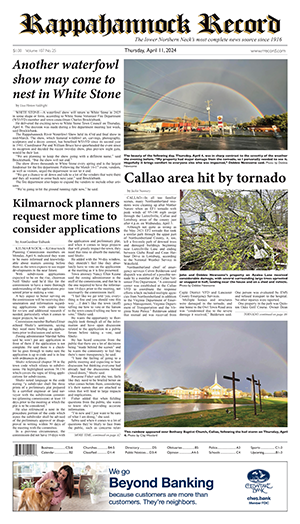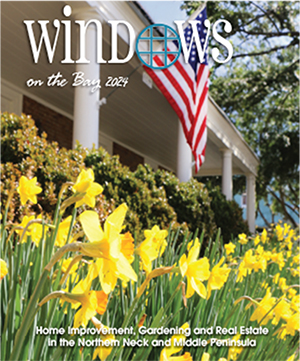
by Henry Lane Hull
[dropcap]T[/dropcap]he Northern Neck Master Gardeners hosted a compelling presentation on climate change last week. The speaker was Bud Ward and his remarks were especially pertinent to our lives here in the Northern Neck, given the extensive amount of waterfront property that abounds and our exposure to severe weather activity.
Bud Ward is a resident of White Stone and has been reporting as a journalist on the subject of global warming for over 30 years. He was a founder of Yale University’s climate change program and is the editor of “Yale Climate Connections.” With his background in studying the political, economic, geographic and social aspects of global warming, he is capable of describing the full gamut of what we are to expect as the process unfolds over the ensuing decades.
He explained the different categories of individuals’ reactions to climate change from those who are alarmed at 17% and those who are concerned at 34%, thereby constituting a majority of 51%, as opposed to the remaining 49% who either are skeptical or in a state of total denial.
For us in the Northern Neck, one of the most alarming statistics that he offered concerned Hampton Roads being considered by scientists as the second or third most vulnerable area in the United States to be threatened by sea level rise. Globally, it is considered to be the 10th most vulnerable. When one travels through Hampton, Newport News and Norfolk, which are not that far away, the figures become far more worrisome. In the last 65 years the sea level there has risen by six inches. As that process continues much property will become threatened and unusable.
One “solution” some owners have found is to elevate their houses, which might mitigate the potential damage from hurricanes and tropical storms in the short run, but will not solve the problem of getting to the property as the land falls prey to the rising sea level apart from the storms.
Bud also discussed some profound effects that we will come to experience in the form of shorter winters, which will mean that certain pests will be able to winter over thus surviving the cold weather. The audience seemed particularly concerned, for good reason obviously, when he mentioned ticks and mosquitoes.
Plant species also will adapt to warmer temperatures. As an example he mentioned that live oak trees will be able to grow in more northern climates. I have thought of one in Kilmarnock and the two at Belle Isle State Park and possibly others with which I am not familiar, as being unique among the flora of our area. Future generations might view the species as being more commonplace.
Flooding and highway washouts, such as the ones we have experienced locally in the past year, increasingly will result with the intensity of future storms being greater than what we have known in the past. Major hurricanes will become more common and will do more damage.
Hearing about climate change, global warming and sea level rise on the news and reading about the topics in the paper, one somewhat glibly might think of them as academic subjects. Listening to Bud’s presentation, they became much less academic and more immediate. Individual actions to combat the looming menace might be small, but nevertheless necessary.
The problem is of truly global significance, but as with the ancient Chinese proverb that proclaims that the longest journey begins with the first step, remedies and solutions to this impending crisis must begin with a level of public awareness that will engender responses that call for each of us to put a shoulder to the wheel to lessen the severity of the impact.











